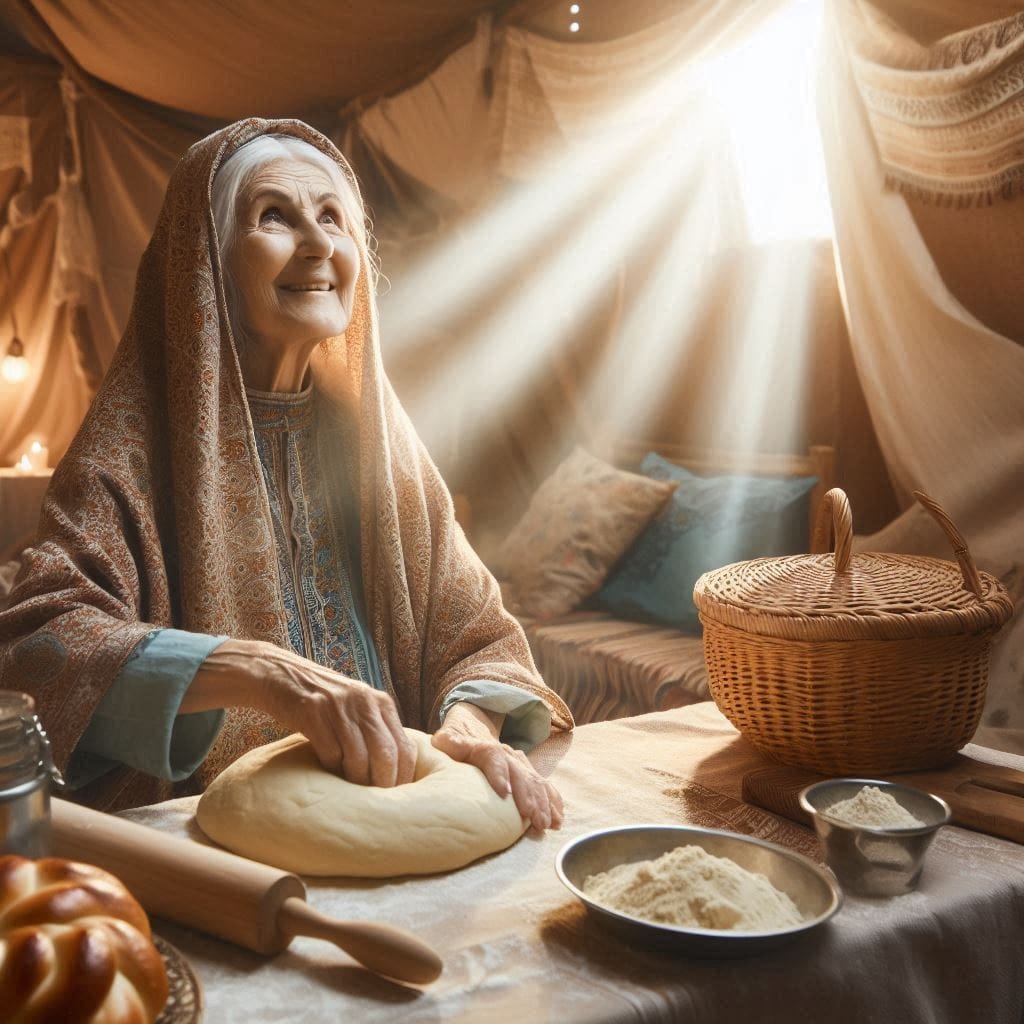In Parshat Vayera, one of the most touching and miraculous moments comes when three visitors—angels in disguise—arrive to deliver divine messages to Avraham and Sarah. These visitors bring Sarah the news that, despite her advanced age, she will bear a son, Yitzchak. When Avraham and Sarah prepare to welcome the guests, Avraham encourages Sarah to quickly make cakes or bread for them from fine flour.
This dough, often highlighted in Midrashic and Chassidic sources, is seen as special—blessed by Sarah’s kindness and hospitality. It’s said that Sarah’s dough had a unique blessing: a cloud of divine presence rested over her tent, her Shabbat candles stayed miraculously lit from week to week, and her bread remained fresh and satisfying. These miracles reflected her dedication and holiness, imbuing her home with an atmosphere of peace, kindness, and connection to God.

The blessed dough of Sarah becomes symbolic of the nurturing nature of the Jewish home. It’s a place where physical nourishment and spiritual warmth coexist, and where the divine presence is invited through acts of kindness, hospitality, and faith. This concept resonates deeply with the Jewish experience in Israel. The Land of Israel is described in the Torah as a “land flowing with milk and honey”—a land meant to physically sustain the Jewish people but also to spiritually elevate them. Just as Sarah’s dough was blessed to sustain those who partook of it, Israel itself is a land imbued with unique blessings that nourish both body and soul.
In many ways, Sarah’s miraculous dough foreshadows the role of Israel in Jewish life: a source of physical sustenance that also serves as a spiritual center. Just as her bread was made with loving hospitality and faith in God’s promise, our connection to Israel calls us to cultivate the land with the same sense of purpose, kindness, and belief in God’s covenant. We’re reminded that, like Sarah’s tent, Israel becomes a dwelling place for the Shechinah—the divine presence—when the Jewish people live there with a commitment to God’s values of kindness, holiness, and hospitality.
In welcoming the angels and preparing her dough, Sarah teaches us a model of Jewish life rooted in kindness and faith. And just as her tent became a place where God’s presence dwelled, so too does Israel hold that potential today: to be a place where the Jewish people bring holiness into the world, where sustenance and spirituality are interwoven, and where the legacy of Avraham and Sarah lives on.
Shabbat Shalom,
Yiska Guberman and the JET Team

